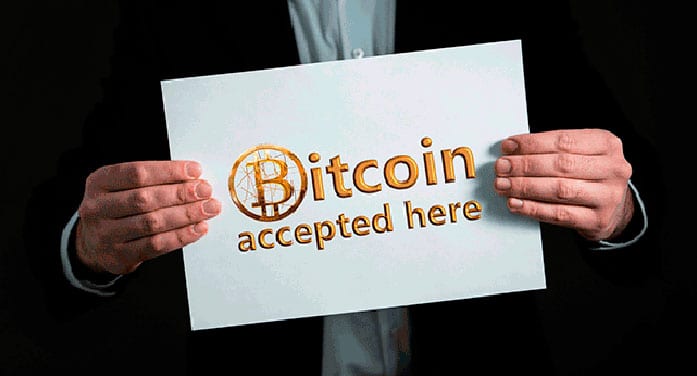 Former Canadian prime minister Stephen Harper recently suggested bitcoin could become a reserve currency alongside the U.S. dollar.
Former Canadian prime minister Stephen Harper recently suggested bitcoin could become a reserve currency alongside the U.S. dollar.
Now a business adviser with Harper & Associates consulting, he had a caveat: bitcoin still lacks a key money feature, that being a store of value.
In contrast to fiat currencies, bitcoin has done little but rise in value since its genesis. Regardless of fluctuations, though, the future looks bright for the world’s first cryptocurrency as it garners institutional adoption.
Asset managers, major banks and other top institutional players are betting big on bitcoin. Prominent entrepreneurs and financial gurus such as Elon Musk, Paul Tudor Jones and Bill Miller have also jumped on the bandwagon.
PayPal, Cash App and other platforms now let their massive user base buy bitcoin. And the U.S. government recently approved the first digital bank allowed to hold cryptocurrencies. Finally, adoption and regulation appear to be on the same path.
Bitcoin has been one of the best investments during the COVID-19 pandemic, recording a historic high of US$52,500 recently.
On the other hand, the dollar is between a rock and a hard place. The American government had to pump US$2.3 trillion in liquidity and keep interest rates near zero to prop up the economy. According to the International Monetary Fund (IMF), circulating money within the United States increased by more than 60 per cent in 2020.
Bitcoin is far from the sole candidate to replace the dollar. For decades, analysts have focused on the euro and the yuan. Ironically, their main drawbacks are the euro’s multilateral governance system and the yuan’s arbitrary, one-party rule.
As Harper noted, countries could choose a tried-and-true alternative: the gold standard. This system, however, requires trusting that governments and central banks are keeping enough metal as collateral. In a polarized world of trade wars and sanctions, it seems unlikely.
FROM THE ARCHIVES: Central banks should stay clear of cryptocurrencies by Paz Gomez
This is where bitcoin brings something new to the table. It combines gold’s best features with decentralization and immutability, thanks to the blockchain. Trust in any particular bitcoin holder is not necessary. It is also more efficient and convenient for an increasingly digitized and globalized world. Nowadays, the idea of shipping tonnes of metal across oceans boggles the mind.
For crypto pioneers such as Hal Finney, bitcoin could become a reserve currency while removing the need for central banks. There will only ever be 21 million bitcoins. Although central bankers criticize this fixed supply as a weakness in times of crisis, what they don’t say is that bitcoin would take away their manipulation of the money stock for political purposes.
The aforementioned is not to say bitcoin is inexorably bound to become a reserve currency in the near future. The cryptocurrency must overcome a series of challenges first.
Political opposition is a major hurdle. As former U.S. congressman Ron Paul said in an interview, the U.S. Federal Reserve and other regulators would intervene to prop up the dollar. As expected, they would do everything in their power to preserve their monopoly and cripple contenders.
Bitcoin’s ace up its sleeve is technology – a ledger distributed across so many devices around the world that no government can confiscate it. The more bitcoin is adopted, the less regulators can do, short of shutting down the internet. They can crack down on crypto exchanges and institutional investors, but there’s nothing preventing individuals from trading directly with one another. Such a move would only increase bitcoin’s outsider and rebel appeal.
Other critical challenges are inherent to bitcoin. Given its cutting-edge technology, bitcoin could have coding errors that may introduce loopholes and undermine user confidence. Notwithstanding exchange failures, over a decade has passed without major incidents with the ledger, and there’s a growing community of developers ready to patch the software.
Volatility is perhaps the biggest economic obstacle for a bitcoin standard. Further, the network can’t yet scale to handle the volume of transactions that would imply being a reserve currency, but it’s just a matter of time. Money is pouring in, which contributes to stabilizing the price, and incentives are in place to find a solution, such as the Lightning Network.
On the other hand, the dollar’s prospects aren’t encouraging. The U.S. government needs to keep printing money to stimulate the economy, thus debasing the dollar, fuelling inequality and stoking resentment that leads to episodes like the GameStop revolt.
Even if bitcoin’s price spike is a speculative bubble that eventually bursts, the event will leave a precedent. The dollar survived the 2009 financial crisis unchallenged, but this time the sheer size of the U.S. government’s stimulus, coupled with a mistrust of experts and the embrace of cryptocurrencies by financial markets, can tip the scales. Even if a fraction of the global economy moves to a bitcoin standard, that alternative will create a ripple effect.
Unlike fiat currencies, no one can impose bitcoin, so the only path to a reserve currency is bottom-up. Adoption started with individuals, then investors and now companies.
The dollar has nothing against bitcoin’s central feature, a censorship-resistant value vehicle. This may be the most important catalyst, as it resonates with the ethos of this era: everyday citizens uniting against the protected managerial class.
Paz Gómez is a research associate with the Frontier Centre for Public Policy.
Paz is one of our Thought Leaders. For interview requests, click here.
The views, opinions and positions expressed by columnists and contributors are the authors’ alone. They do not inherently or expressly reflect the views, opinions and/or positions of our publication.
© Troy Media
Troy Media is an editorial content provider to media outlets and its own hosted community news outlets across Canada.


